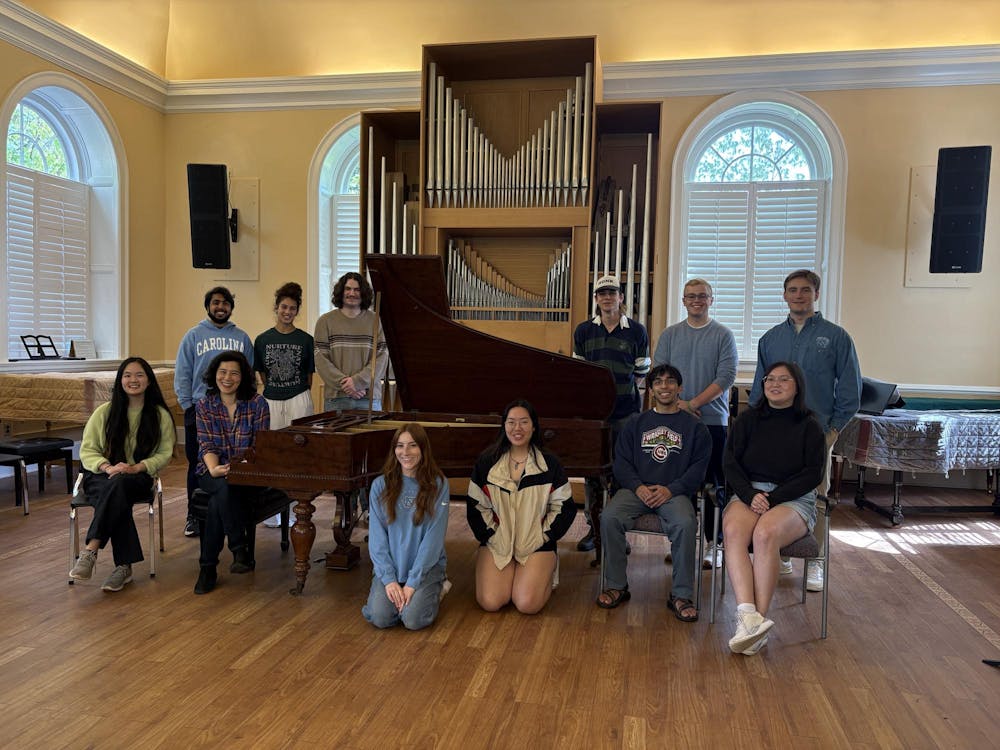On the afternoon of Saturday, April 12, the annual 1843 Pleyel Piano Concert took place in Person Recital Hall, presented by the Department of Music and professor Mimi Solomon’s Music 286: Traveling Through the Ivories class. During the concert, different pianists played 19th century music using the historic Pleyel piano.
Tom Kenan donated the piano to the University and it is believed to have been played — and favored, over other pianos — by Polish composer Frédéric Chopin when he was a young man. Each spring semester, Solomon’s students put together a concert after learning about the Pleyel piano’s unique design and sound.
“Hearing the pieces live just brings a completely new life into [it],” Rachit Keyal, a student in Solomon’s class, said. “It brings new life into what we've been learning in class. And I think having that academic context just makes something like this concert even more special.”
All the performers practiced with the Pleyel before the show under the guiding hand of Solomon. The Pleyel is unlike a typical grand piano, and requires pianists to learn about its specific features. It is only to be brought out at specific times due to its age and historic significance.
“The touch is lighter,” Solomon said. “There are fewer keys on the piano, only two pedals instead of three, and it's not built to project in the way that a concert grand does. It doesn't have that extreme forte, so you start to notice that a lot of the colors and different textures you want to find are through articulation and pedaling and timing, especially.”
Corinne Lombardo, the starting pianist, said that getting used to the shape of the keys and learning how to add her own flourishes was challenging.
Lombardo played a Chopin piece at the event. She said that the markings in the score had the Pleyel in mind.
“It was really interesting to look at the score and think about all the details that Chopin wanted to bring out on this instrument specifically, and it was really interesting to connect that to the sound that Chopin was probably hearing when he played his own pieces,” she said.
The concert consisted of ballades — one-movement instrumental pieces — and operatic performances by invited sopranos like Aurora Milholin, a junior psychology and music major. Milholin performed "Canción de la Infanta," a Spanish ballad about the death of a prince.




